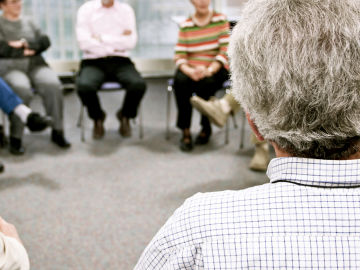“We see that global challenges need global discussions”
Decisions made in Europe increasingly impact us all, but opportunities to discuss them with fellow Europeans are limited. The festival provided an environment for interesting discussions and active participation, aiming to create a more unified European community to build a sustainable future.
Hybrid European Democracy Festival would be the pan-European public sphere that connects everyday problems to global challenges. By exchanging experiences and ideas with other citizens who share the same concerns, we may be able to achieve this”, Joanna Kurvits, Project manager
The festival featured more than 15 locations, each hosting a physical hub. Participants had the opportunity to join from any of these hubs and engage with people in other countries attending the festival at their own hubs, through a video broadcast. They interacted virtually using video technologies.
The festival’s main stage was situated in Tartu, Estonia, commemorating the city’s designation as the European Capital of Culture for the year. The festival was part of the main program of Tartu 2024. The project was organized by the DD Foundation together with multiple partners across Europe.
Supporting climate action through activism and litigation
At our hub in Puistokatu 4, we organized a discussion on supporting climate action through activism and litigation, in collaboration with the University of Eastern Finland and the 2035Legitimacy project.
The event began with a hybrid dialogue connecting participants from Finland, Ireland, Italy, and the UK. One chair was left empty in the discussion, allowing anyone from the audience to join in the conversation if they wished. Following this, we held a local Timeout dialogue focused on how civil society and research can collaborate for climate action.
There’s so much happening in the field of litigation, and it can be difficult for an individual, even an activist working on the issue, to keep up with it all. However, the role of litigation is important in activism and in collaboration between different actors, to ensure readiness for the next wave. Litigation is inherently reactive and has an impact retrospectively, but at the same time, it must look forward to the future, which it nevertheless influences. Therefore, events like this, where litigation is discussed and people are brought together, are very important”, Hanna Aho, The Finnish Association for Nature Conservation
Regarding climate litigation, different countries can learn a great deal from each other. Both the speakers and the audience found the joint discussion on the topic to be very important. This event successfully brought together the worlds of research and civil society, aiming to find effective ways to work together towards climate action.
It was so great to hear such inspiring stories from countries ahead of us! As many countries have not yet had any climate activism cases that have gone to the Court by suing the government for not obeying its own Climate laws”, feedback from the audience
The experience of Finland really inspired us in the audience! We can only learn from it and continue in the same way. We in Riga surely agreed that it is not enough with governmental actions towards preserving our planet and its resources. We all have to combine our forces to make a change and make it public, to make a snowball effect. Thank you to all speakers and organizers for sharing such positive examples!“, feedback from the audience
Watch the discussion here.
Hyperlocal discussions
In collaboration with the DD Foundation, we developed a tool for organizing transnational hybrid discussions. This tool was created in preparation for the Hybrid European Democracy Festival to foster pan-European dialogue. It enables anyone to learn from the festival experience and organize their own transnational discussions.
This toolkit explains the concept of transnational dialogues, clarifies what hybrid discussions entail, and outlines how they work. It includes detailed instructions on the technical organization of hybrid discussions and provides tips for effective facilitation. For further insights and guidance, refer to the material package titled Arranging Hybrid and Transnational Dialogues.




